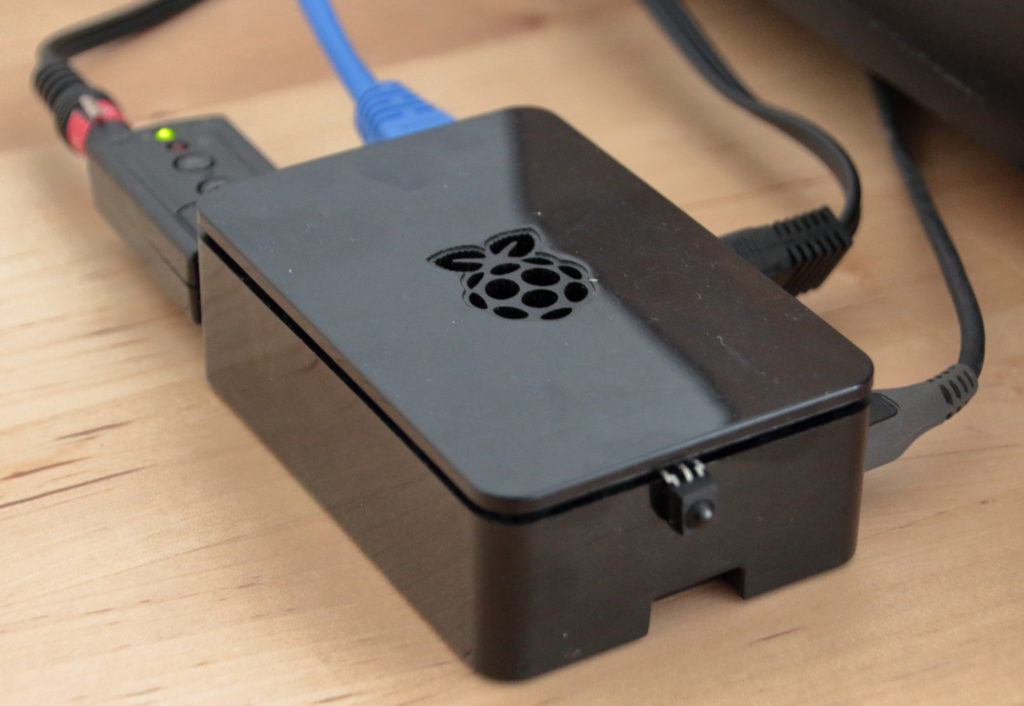My Next Media Center Iteration: Intel NUC8i3BEH
My Raspberry Pi 4 based media center has some issues, which I was able to resolve by switching to an Intel NUC8i3BEH platform. I was able to make the device quiet despite of its fan, and set up everything to have live TV and PVR, a web browser, Spotify and other DRM content in a very usable and performant setup.
Continue reading “My Next Media Center Iteration: Intel NUC8i3BEH”
Quick Thing: TARDIS Housing for Raspberry Pi modded for Raspberry Pi 4
This is just a quick note that I updated my Tardis housing for my media center to now hold a Raspberry Pi 4. The new version features:
- An improved “POLICE public call BOX” sign
- A hole for a 5 mm LED in the top for a shining light
- The necessary holes for USB-C, 2x Micro-HDMI and Audio out
- A removable top
Continue reading “Quick Thing: TARDIS Housing for Raspberry Pi modded for Raspberry Pi 4”
Replacing Fabtotum Hybrid Head v1 Hotend with E3D Lite6
I replaced the stock hotend of the Fabtotum Personal Fabricator Hybrid Head v1 by an E3D Lite6 hotend (The full metal V6 should work the same way). In this post I describe the steps to remove the old hotend, get in the new hotend and the simple modifications to the firmware that were required.
Continue reading “Replacing Fabtotum Hybrid Head v1 Hotend with E3D Lite6”
Legal EPG Scraper for ARD TV Stations to Use With tvheadend External XMLTV Grabber
I wrote a Python EPG scraper for the EPG data of the German TV stations broadcast by ARD. It is legal for private use. Here I share the code and my thoughts behind it.
Le Potato Media Center & German IPTV Re-Revisited
The comment by Argus Nymus on my Media Center for German IPTV post made it clear that my approach with playlist filtering via web proxy was way too overengineered. For several reasons I needed to rebuild my media center anyhow, so it was time to simplify my approch, which I describe in some detail here.
Continue reading “Le Potato Media Center & German IPTV Re-Revisited”
Interfacing EasyMeter Q3M via Info-Interface
The installation of my fuel cell heating required a bi-directional power meter. Bonn Netz, my local power network provider, uses meters of type EasyMeter Q3M which have two infrared interfaces: A bidirectional D0 interface, and a read-only info interface. I use the info interface (INFO-DSS) to read out power consumption and production of the three phases. For this, I built an optical interface, a 3D printed housing for it, and use the UART of a Raspberry Pi with python to get the values.
Continue reading “Interfacing EasyMeter Q3M via Info-Interface”
Quick Note: Web-View with PyQt5 and Qt 5.7+ on Raspberry Pi
This is a short note how to use QtWebKit with Qt 5.7+ on Raspberry Pi.
Continue reading “Quick Note: Web-View with PyQt5 and Qt 5.7+ on Raspberry Pi”
Media Center revisited: Libre Computer “Le Potato” plus LibreELEC
While Raspberry Pi with xbian is already a versatile media center, I’m not 100% satisfied with everything. And, with the advent of H.265/HEVC as German DVB-T2 standard, the technical requirements have outrun the current offerings of the Raspberry Foundation. So I decided to migrate my Kodi media center to brand-new Libre Computer’s Le Potato board with LibreELEC, and here are the steps to do so, starting from the xbian media center described in an earlier blog post.
Continue reading “Media Center revisited: Libre Computer “Le Potato” plus LibreELEC”
TARDIS housing for my Raspberry Pi media center
When I built my media center, it went into a simple black box:

Boooring! Continue reading “TARDIS housing for my Raspberry Pi media center”
Interfacing Vitovalor 300-P with a Raspberry Pi
I want to integrate my new Viessmann Vitovalor 300-P fuel cell heating into my home automation. For this, I use the Optolink interface, vcontrold from the openv community, and create my own configuration files from several sources.
Continue reading “Interfacing Vitovalor 300-P with a Raspberry Pi”
